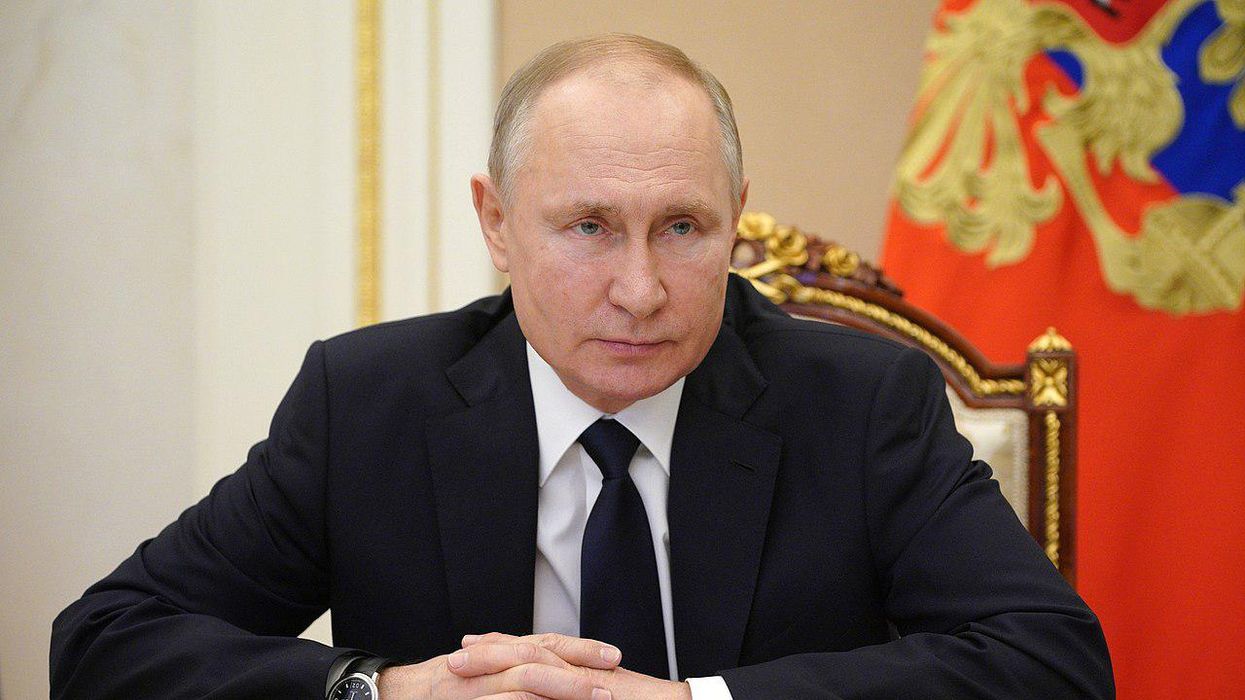Ukraine has exposed Russia’s dysfunctional 'military culture': conservative


For all the destruction that Russian forces, on orders from President Vladimir Putin, have inflicted in Ukraine since invading the country on February 24, they have found the Ukrainian resistance to be quite forceful. Morale among Russian soldiers is low, according to numerous reports — and a North Atlantic Treaty Organization (NATO) official has estimated the number of Russian troops killed in the conflict to be somewhere between 7500 and 15,000.
Never Trump conservative and Washington Post opinion writer Max Boot discusses the invasion of Ukraine in his April 12 column, stressing that the Russian military’s ruthlessness doesn’t make it any less dysfunctional. From Afghanistan to Ukraine, Boot argues, the Russian military’s history has been one of dysfunction.
“The war is far from over,” Boot explains, “but Ukraine’s triumph over Russian forces in the Battle of Kyiv was an epic victory for the ages. It will be remembered alongside the 1588 defeat of the Spanish Armada, the 1781 Battle of Yorktown, the 1879 Battle of Isandlwana, the 1905 Battle of Tsushima Strait, and the 1954 Battle of Dien Bien Phu as examples of a smaller power defeating a more powerful adversary. How did the Ukrainians succeed in driving off the mighty Russian Army, which was widely expected to march into Kyiv within a few days?”
According to Boot — who was born in Moscow but grew up mostly in Los Angeles — the Russian military’s “manifold deficiencies” have “been brutally exposed during its unprovoked invasion of Ukraine.”
“These include corruption, brutality, low morale, poor planning, faulty logistics, bad intelligence, lack of coordination between units, over-centralization and a paucity of initiative on the part of junior officers and sergeants,” Boot explains. “These are not new problems, and they will not be fixed any time soon. Indeed, an 1854 article in The Economist explaining Russia’s early defeats in the Crimean War — also fought primarily in Ukraine — reads eerily like an account of Russia’s current military travails.”
Blogger Stephen Douglas tweeted excerpts from that Economist article on March 6. And the types of problems the Russian military had back in 1854, Boot writes, are still plaguing it today.
“Two of the Russian weaknesses identified by The Economist particularly leap out,” Boot notes. “First: ‘The Russian armies are often armies on paper only.… The colonels of regiments and officers of the commissariat have a direct interest in having as large a number on the books and as small a number in the field as possible — inasmuch as they pocket the pay and rations of the difference between these figures.’ Second: ‘Common soldiers.… have no love of their profession, and no interest in the object of the war.’”
Boot continues, “That was because the typical Russian private was ‘torn from his family and his land, drilled by the knout, neglected by his officers, fed on black bread, where fed at all, always without comforts, often without shoes.’”
Russia, according to Boot, “is still ruled, as it has been throughout nearly all of its history, by a brutal and corrupt dictatorship.”
“The shortcomings of public administration help to explain Russia’s dismal performance in conflict after conflict,” Boot writes. “Russia lost not only the Crimean War (1853-1856), but also, the Russo-Japanese War (1904-1905), World War I (1914-1918), the war in Afghanistan (1979-1989) and the First Chechen War (1994-1996). Its major military victories — in the Napoleonic Wars and World War II — came only after an invader was foolish enough to dissipate his forces in the vast Russian landscape and only when Russia was greatly assisted by western allies.”
Boot adds, “The Ukrainian Army, an outgrowth of the Red Army, was initially hobbled by many of the same difficulties as the Russians. But after 2014, the Ukrainian military and state reformed themselves along western, democratic lines.”
Boot concludes his column by emphasizing that although Ukraine has a smaller military than Russia, it has a “superior military culture.”
“The Russians may eventually be able to assemble fresh forces to fight in the Donbas region — although it will take some time — but they will not be able to change their stultifying military culture,” Boot writes. “That is why I expect the Ukrainians to continue winning the war, providing they continue to receive the weapons and ammunition they need from the West. A superior military culture is Ukraine’s secret weapon.”